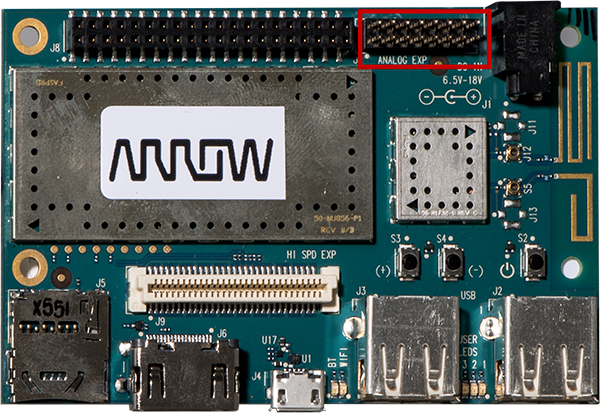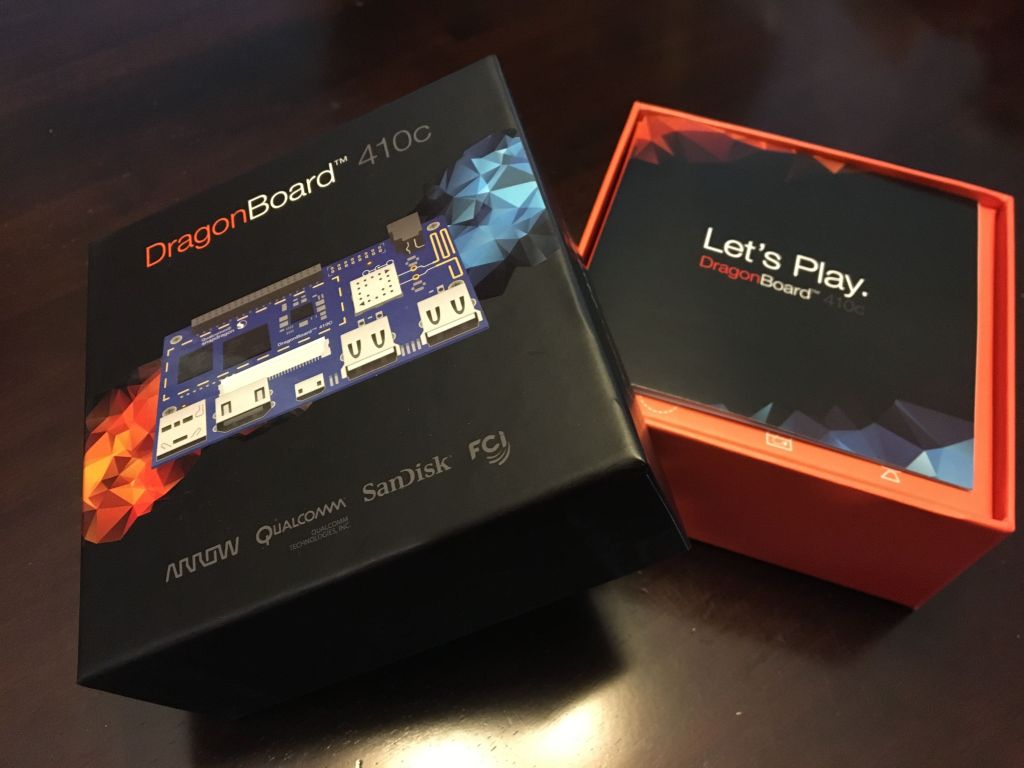I finally got around to ordering a new dev board, the DragonBoard 410C. I liked the idea of the open platform so I ordered it from Arrow Electronics. It got to me really fast, I ordered it and it was delivered 4 days later. It was packed very well, and arrived safe, so nothing but praise for Arrow.
Over that past few weeks I have been learning more about the DragonBoard 410C, attending the weekly 96boards office hours. I highly recommend them if you are even slightly interested in the 96boards or ARM-based SoC dev boards. There is a wealth of experience presented every week and the topics are very informative.
I have several ideas for this board, but one of them is probably no surprise for anyone that has followed my Linaro blogs, namely Linux audio experiments. Other ideas include trying it as an OpenStack compute node, media streaming host, and maybe even an OpenBMC sandbox. I started doing research on what was possible using this board and immediately ordered one. However, I then found this page and I realized that my board did not have the audio pin header installed. I was actually surprised that this was even an option and not soldered into every board, since it might add a whopping $.50 to the cost.

My board was already on the way so I couldn’t change plans. I was slightly disappointed that I hadn’t found and purchased the specific DragonBoard 410C Audio. As it turns out, this audio bundle is a really good value, for just $14 more you get the pin header pre-installed and a power supply. No big deal for me since I already had several appropriate power supplies. I have a lot of soldering experience, but soldering a dev board and potentially bricking it is somewhat unnerving and I would have gladly paid a few dollars for it to have been done for me. I decided to wait till the board came and see what it was all about before ordering any mezzanine boards or headers required.
Next, I’ll share my experiences with bringing up a Debian environment to see what the board will do, stay tuned.
